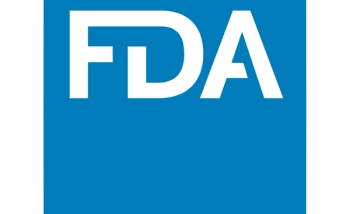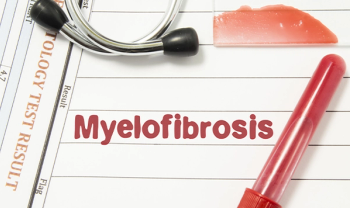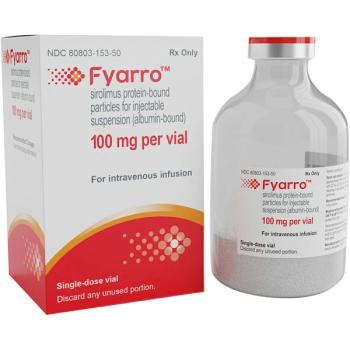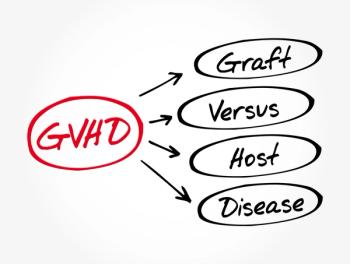
There’s no guarantee, but physical activity and corralling cardiovascular risk factors and diabetes improve the odds. Health insurers can assist by helping members address the “upstream” social determinants of health.

There’s no guarantee, but physical activity and corralling cardiovascular risk factors and diabetes improve the odds. Health insurers can assist by helping members address the “upstream” social determinants of health.

In this week's episode, Briana Contreras, editor of Managed Healthcare Executive, spoke with Peter Durlach, chief strategy officer of Nuance. The two discussed how artificial intelligence drives value for patients and providers and how AI tools and solutions are helping health systems reach the quadruple aim of care.

Their application to the FDA included data showing that confirmed infections and severe illness were lower among individuals who received a second booster of the Pfizer-BioNTech vaccine.

Allan Coukell, Civica’s senior vice president of public policy, discusses how the generic manufacturer is disrupting the market for insulins.

A Johns Hopkins study found an association between use of e-cigarettes and prediabetes. More research is needed to tease out the possible causal elements of the association. Meanwhile, a federal government survey found that 1.72 million high school students and 320,000 middle schoolers are current users of e-cigarettes.

Evio Pharmacy Solutions plans to provide biosimilar alternatives for autoimmune and cancer therapeutics.

The American Cancer Society’s 2022 statistical report shows that the 30-year trend is continuing.

Saunders, co-founder at Intellihealth and assistant professor of Clinical Medicine at Weill Cornell Medical College, addressed to MHE the degree obesity is a risk factor at for severe COVID-19 and what those reasons are for obesity increasing the risk. This video is in correlation to Managed Healthcare Executive's March Issue cover story highlighting the dangerous pairing of COVID-19 and Obesity.

In an interim analysis, Keytruda/Lynparza did not improve overall survival in patients with metastatic castration-resistant prostate cancer who progressed after treatment with chemotherapy.


Research presented at the 2022 American Academy of Allergy, Asthma & Immunology (AAAAI) Annual Meeting found minority patients with asthma perceived lower quality interactions with their care team, but did not find significant differences in the prescription of biologic medications across racial/ethnic groups.

Voluntary guidelines passed in January show a way to making interoperability work on a practical level.

Home healthcare is booming, and precision medicine is going to create a demand for employees with new kinds of expertise. But people working in the healthcare are also likely to see growth in internal promotions, specifically for cross-collaboration and cross-functional roles.

A recently published review delves into the role that type 2 inflammation plays chronic rhinosinusitis and the evidence that agents that interfere with that inflammatory pathway could be used as treatments.

A large prospective study of the use of Rituxan (rituximab) and a biosimilar, Novex, has yielded safety data validating the use of this agent in pediatric patients with a wide range of diseases and conditions, ranging from oncologic and hematologic to neurologic.

The agency plans to convene an advisory committee to review the application of Nuplazid to treat Alzheimer’s psychosis. The FDA also approved an indication for Opdivo, okays a third biosimilar to blockbuster cancer treatment Neupogen, and issues complete response letter for long-acting HIV therapy.

Study adds to the evidence that reducing the risk of blood clots should be one of the main goals of managing these myeloproliferative disorders. Monitoring cholesterol levels may be especially important.

Besremi (ropeginterferon alfa-2b-njft) is the first interferon approved specifically as a treatment for polycythemia vera.

Anthem, which owns Blue Cross Blue Shield plans in 14 states, will need shareholder approval to make the change. The vote is scheduled to occur May 18.

JAK inhibitors, such as Jakafi (ruxolitinib), have helped improve outcomes and survival of patients with the rare blood cancer.

The company will distribute nalmefene for no profit, which is part of the company’s bankruptcy filing and settlement with states.

Preliminary research using an animal model found that hypoxia during pregnancy had behavioral and neuropsychiatric impacts on offspring.

Getting boosted is now the rule, not the exception, when it comes to COVID-19 vaccination recommendations. The CDC now recommends that everyone, ages 12 and older, get a dose of an mRNA COVID-19 vaccine, either Pfizer’s or Moderna’s. For people who have gotten the two-shot Pfizer or Moderna series, the booster is their third jab. For those who got the single-dose Johnson & Johnson vaccine, it is the second.

For now, only the Pfizer and Moderna vaccines have full FDA approval, but many candidates are in phase 2 or 3 trials.

Besremi is included as an option to treat the rare blood disorder polycythemia vera regardless of treatment history and for use in both low- and high-risk settings.

Chief Operating Officer of Hint Health, Mark Nolan, discussed direct contracting in healthcare among his organization with Managing Editor of Managed Healthcare Executive, Peter Wehrwein, in this week's episode of Tuning In to the C-Suite podcast.

A new study sheds light on the nature of the “long covid.” Researchers say SARS-CoV-2 needs to be viewed not as a respiratory virus but as one with systematic effects.

The 30-minute documentary by a filmmaker with primary-progressive multiple sclerosis doesn’t settle for easy answers about the causes of the disease.

Aadi Bioscience recently launched Fyarro, the first FDA-approved therapy to treat an ultra-rare sarcoma.

Results reported in the Journal of Clinical Oncology suggest filtering naïve T cells from peripheral blood stem cell transplants may decrease the risk of chronic graft-versus-host-disease. An accompanying editorial says a randomized trial is needed to provide definitive proof.